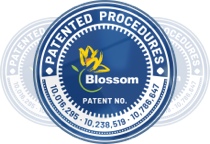Hello. This is Michelle Phelan, nutritionist at Blossom Bariatrics, where expertise meets true compassion. We’re always here for you before, during, and after your weight loss surgery procedure–because it’s the after that’s the most important part.
Today, we’re going to talk about Omega fatty acids and the difference between 3, 6, and 9. There’s been some confusion lately and I hope I can clear it up. Why are healthy fats so important and why are they so important for bariatric patients? And what the heck are they? And what’s the difference between 3, 6, and 9?
Well, Omega 3s are found primarily in cold-water fish, like sardines, herring, and salmon. They can also been found in plant-based sources, such as walnuts and flax seeds.
Omega 3s are especially important for weight loss surgery patients, because omega 3s help control the inflammatory pathway in your body. They protect your nerve endings and help protect the neurotransmitters in your brain. They also enhance your insulin uptake at your cell membrane level, which helps if you already have diabetes or you have insulin resistance.
Omega 6s are too plentiful in the standard American diet today. Omega 6s are primarily vegetable oils, like corn oil or soy bean oil. These are found in every processed food and every packaged food in the United States and in grocery stores everywhere. It’s not important to supplement any more Omega 6s, since we as an America society eat way too much Omega 6s anyway.
Omega 9s are pretty much found in olive oil, and olive oil, or Omega 9, is beneficial because it can help lower LDL. It also helps promote the less inflammatory processes in the body.
But what’s great is that your body can make these on its own, so no supplementation is needed.
Make sure to visit our website at www.blossombariatrics.com. Until next time, have a happy and healthy day!



